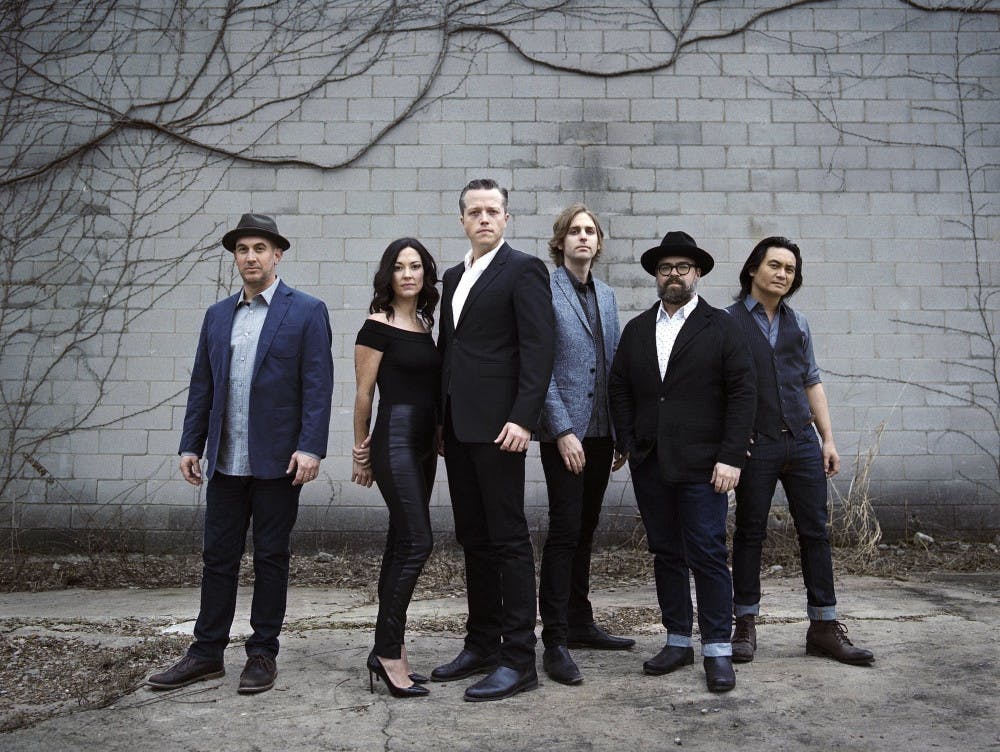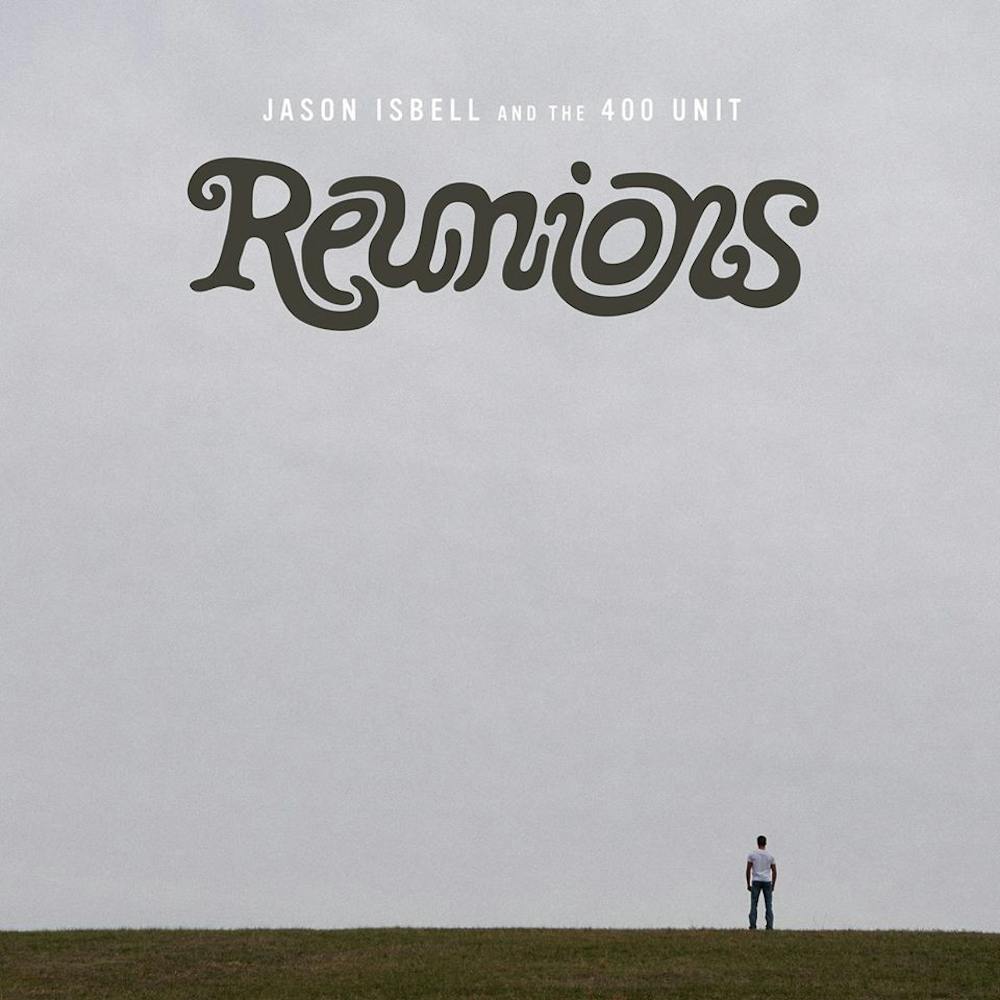by Fluffy Cat // Alumni DJ
Jason Isbell has become a monolithic figure in Americana since 2013’s Southeastern. The former firestarter of a guitarist, whose immaturity and alcoholism saw him unceremoniously dismissed from the mythical Drive-By Truckers, has found success after success after sobering up.

He continued on his merry way through Sirens of the Ditch, his debut album with the 400 Unit, followed by Here We Rest. This all culminated in the aforementioned Southeastern, which lay before us the battle with his demons to reach sobriety which has resonated deeply in the hearts of folk aficionados.
This battle has continued ever since, chronicling three other albums since then: Something More Than Free in 2015, The Nashville Sound in 2017, and Reunions in 2020. The most recent album in this setting, Reunions, captures a slice of the legendary mind of Isbell in a more socially conscious and positively reflective position. Tracks like “Be Afraid” and“It Gets Easier” showcase his outward reflection towards the society that he engages, while “Only Children”, “Dreamsicle”, and “Letting You Go” tackle the anxieties of both past and future memories.
The album continues the spirited evolution of Isbell’s work, seeing him and his band attack lost memories and future anxieties in an attempt to move on. Most of the work is downbeat, but not without intention. “Only Children,” for example, is played out in E Minor and becomes another of Isbell’s poignant reflections upon the mortality of others in his life. This time, however, it’s a nameless figure (or figures) whose absence weighs heavy on the narrator’s mind. Isbell talks to the person directly, channeling their ghost and lamenting about how they were ‘only children,’ both in the fact of their loneliness and in their innocence.
Only three tracks ("Only Children," “Overseas,” and “What’ve I Done To Help”) are in minor keys (all E Minor), whereas “Be Afraid” and “It Gets Easier” are fully upbeat. Even if Isbell is becoming stronger in his confidence against his demons, it shows that he’s not done with channeling the stories of his anxieties.
This anxiety, this reflection of what’s coming next, is no better shown than in a key detail in his lyrics. I am not the first person to say this, but every time Isbell writes about a child, it’s a little girl: his young daughter. His worry is especially in being a good father, and it bleeds into his work in songs like “It Gets Easier” and “Letting You Go.”

There’s a spirited concern in the others around him, whether it’s for his wife and the loss of a dear friend in “St. Peter’s Autograph,” or in the entire folk and country industries in “Be Afraid.”
This echoing concern, in turn, makes “River” a curious oddity in the album, at least at first glance. It is the only track on the entire album that doesn’t reference the fabricated ‘you’ in some form, and it does not feel personal in the same way that every other track does.
On the surface, Isbell’s concern does not come out in the song. It is more a story in the vein of “Hudson Commodore” from Something More Than Free than a sort of reflectiveness on Isbell’s soul. Its story, which is rooted in the eyes of a murderer who begins to feel guilt over his actions, takes a sort of creative liberty that I think only “Only Children” matches.
However, under the surface, Isbell has created a track that, in his own words, is about “somebody who is living in a pretty toxic form of being a man". For Isbell, this track serves as a metaphorical check on himself against toxic masculinity, especially for the sake of his wife and child.
As for my top three tracks on the whole work, I think that would have to go to “Only Children”; the aforementioned “River,” and “Dreamsicle.” “Only Children” is an arresting track, among Isbell’s best, and every piece of it serves the theme of the song. Isbell’s storytelling is on full display here, building a deeply involving narrative and speaking to a ‘you’ that is no longer there. By the time we hear “Heaven’s wasted on the dead / that’s what your mama said,” it becomes clear that this is someone long gone.
The music video adds another layer onto this track, showcasing one of the starring leads fizzling into smoke by the end of the last chorus, leaving the other to move on without her. Isbell is having a reunion with someone lost to the annals of time, however they were lost, and asking them aimlessly how their ghost is doing while reckoning with their loss.

“Dreamsicle” speaks to a similar sort of past, pulling onto memories that weigh the speaker down. These are the words of someone who wrestled with the unraveling of their parents’ relationship, living in the moment and enjoying those dreamsicles in a folded lawn chair as the life he knew falls apart. Isbell does his best to put himself in the truncated view of that young child, and he does it to great success.
The song is paced in such a way to sound nostalgic and almost lazy, like it’s being sung from a rocking chair on a Sunday, but it hides this message of a kid caught up in things greater than the sum of his knowledge. It’s only at the end, where it is likely that the kid is getting older, that he begins to dream of moving on.
What gets me is the summation of everything, the missed games, and the lost friends in a different town, the little things that add up to the failing familial relationship and the world passing him by, that showcase the broken child at the closing of the track.
Overall, Reunions is a beautiful album. I think that my chosen highlights soar high above the rest, but I do believe that every track offers something of artistic and lyrical worth. Jason Isbell has grown into one of the kings of Americana for a good reason. His lyrical capabilities soar, and he has been able to productively put his past behind him to push him to greater heights.
In my opinion, his eight-year run of universally acclaimed work has solidified a place in the highest annals of country and folk, allowing him to become a worthwhile role model to those that matter most to him. By his self-conscious expression of his demons, Isbell can hold a reunion with what haunts him to move forward onto even greater heights
Listen to Jason Isbell & The 400 Unit's album Reunions!

